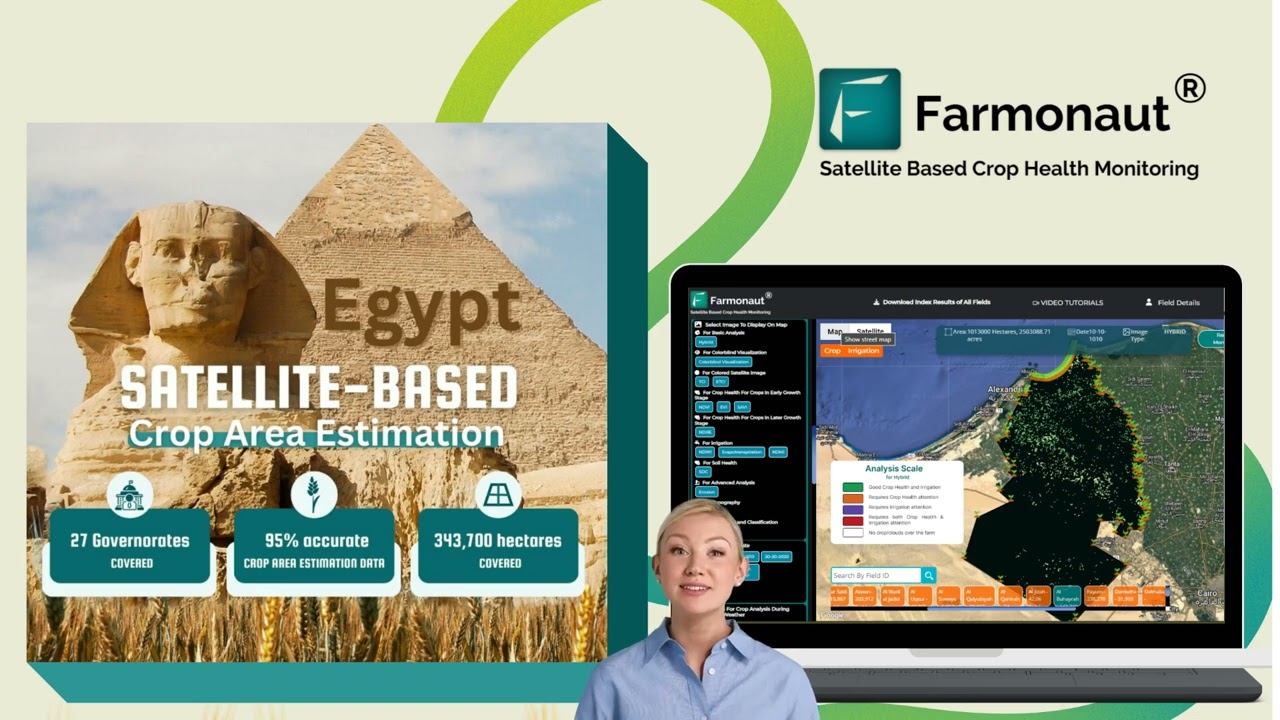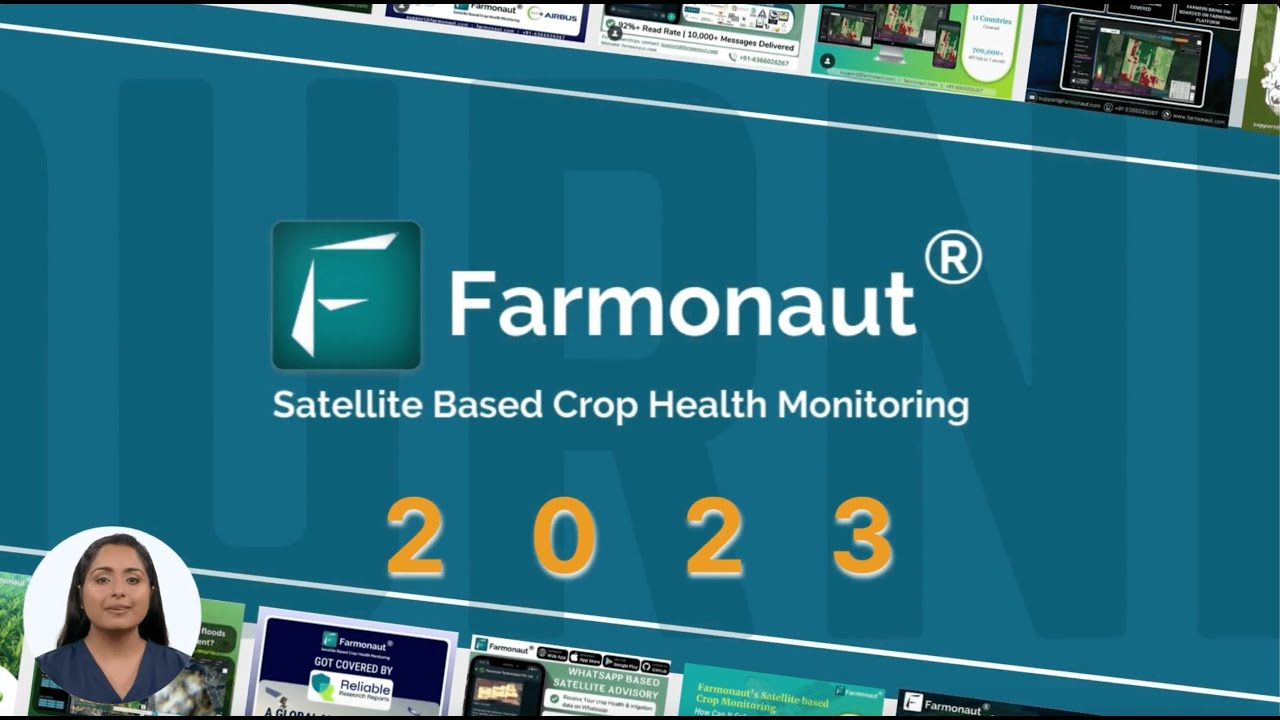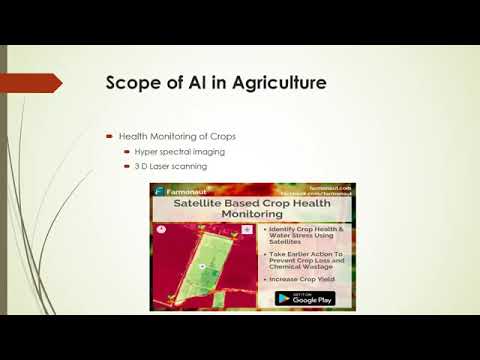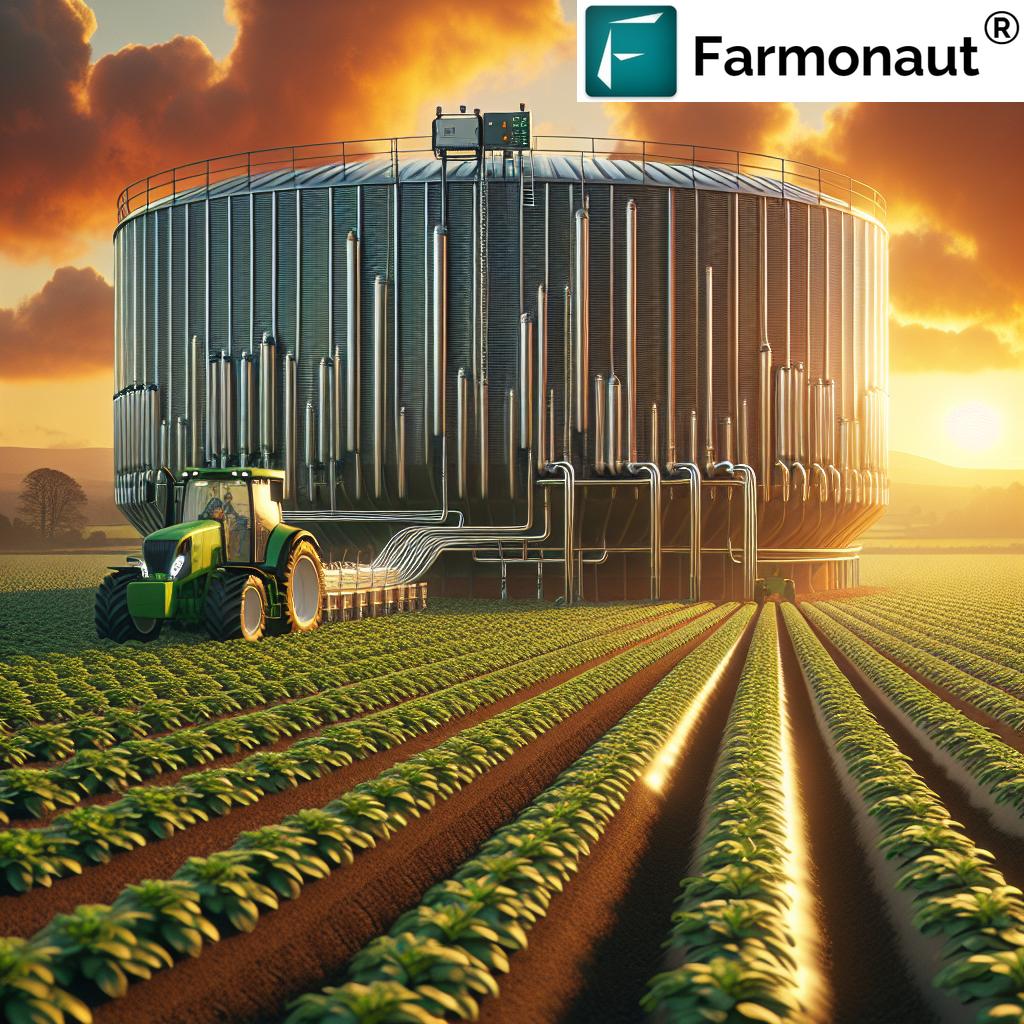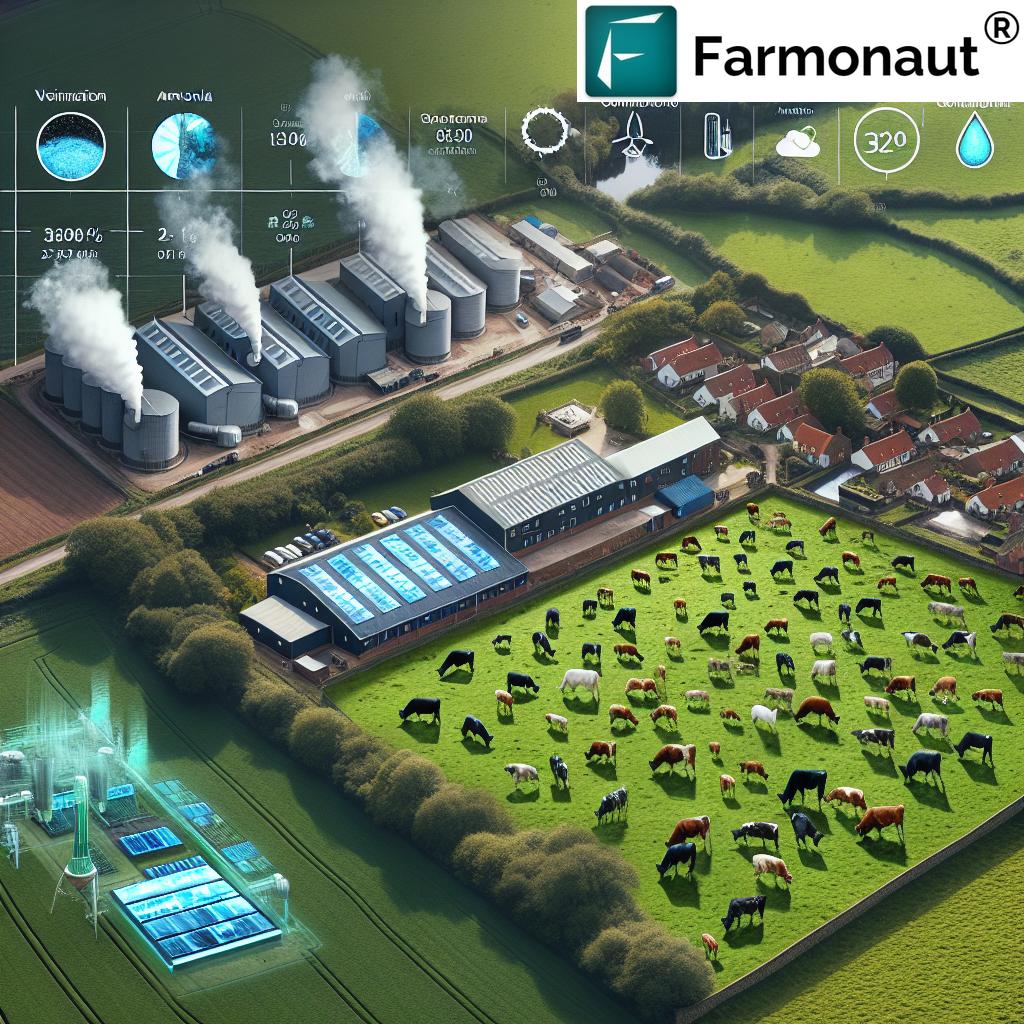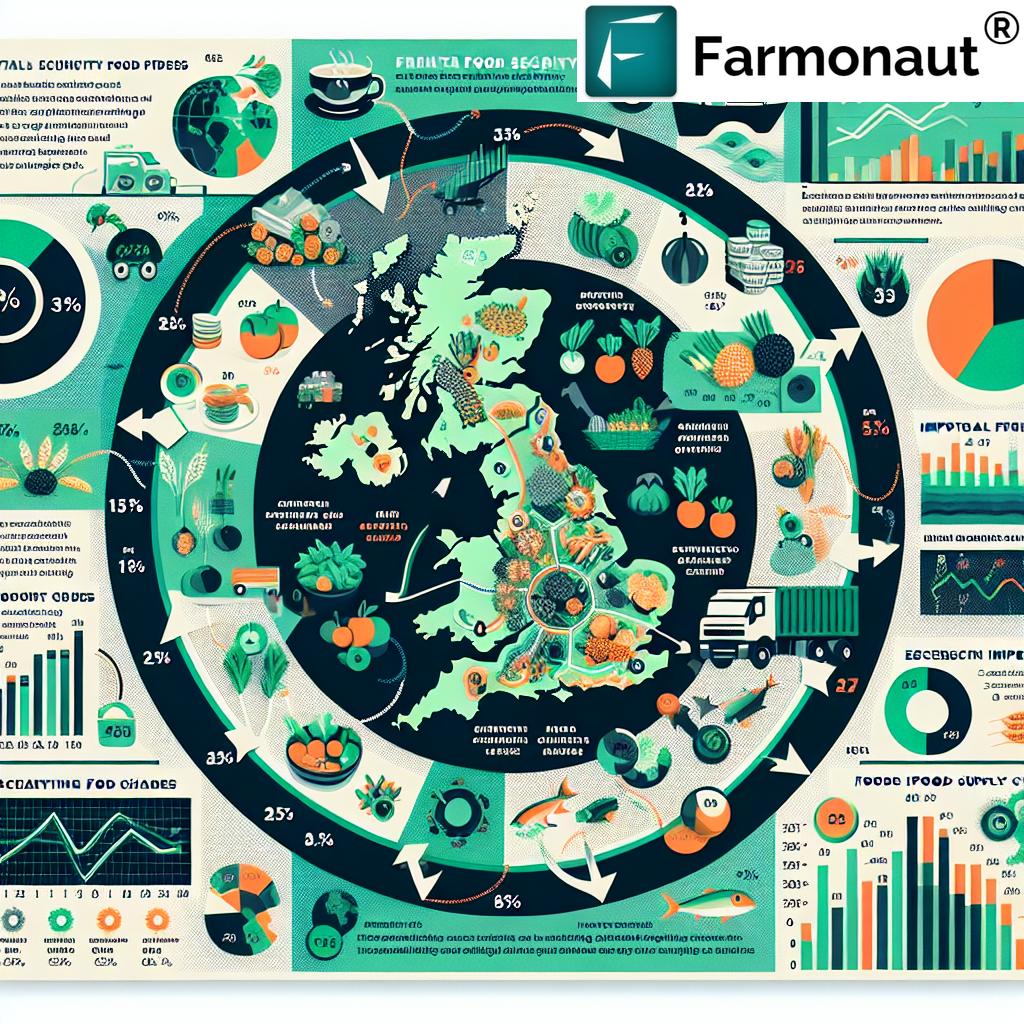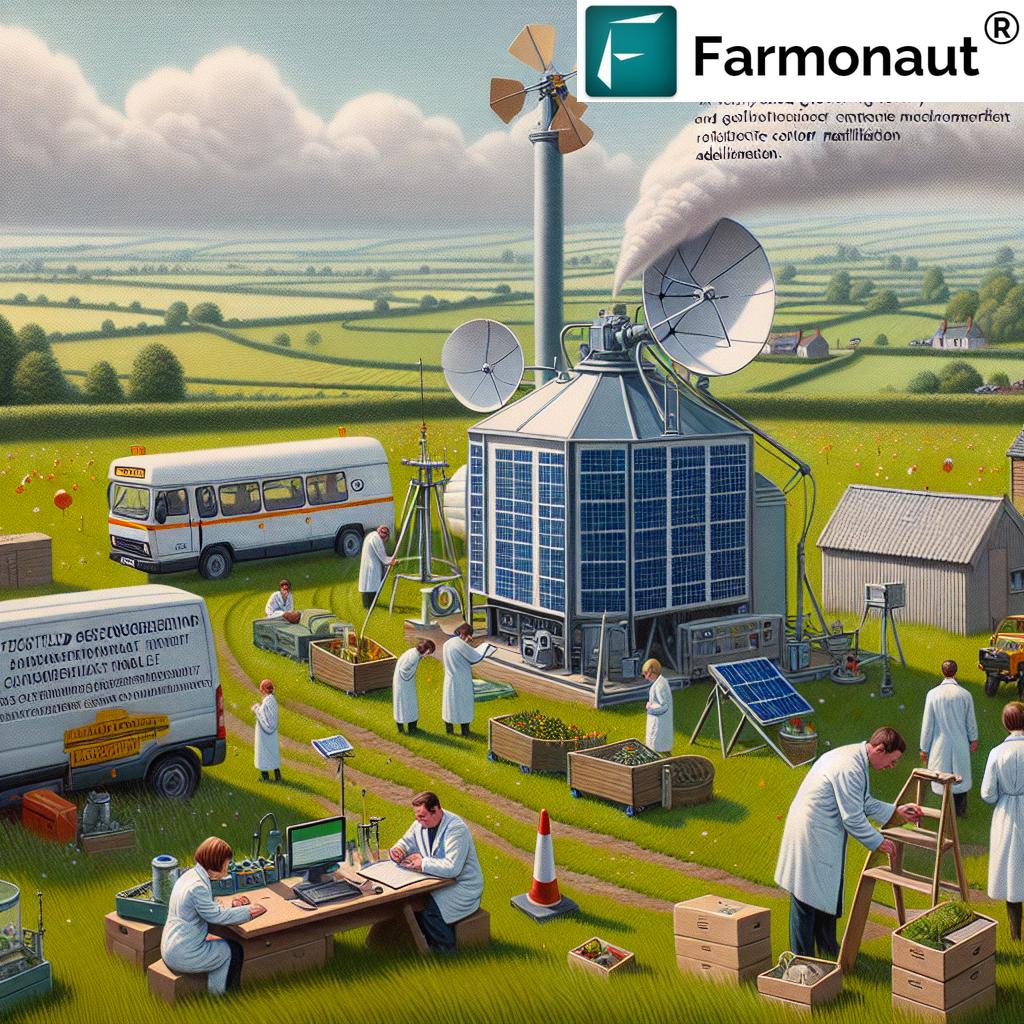Empowering England’s Next Generation: Inspiring Agricultural Careers and Opportunities for Young Farmers

“-The agricultural bursary program targets young individuals aged 18-30, potentially impacting thousands of aspiring farmers in England.”
Welcome to a world of boundless opportunities in agriculture! We’re thrilled to share exciting news that’s set to revolutionize the farming landscape in England. A groundbreaking agricultural bursary has been launched, aimed at inspiring the next generation of farmers and promoting diverse careers in agriculture. This initiative is not just about financial support; it’s about nurturing dreams, fostering innovation, and shaping the future of farming in our beloved country.
At Farmonaut, we recognize the importance of nurturing young talent in agriculture. That’s why we’re passionate about supporting initiatives that encourage farming opportunities for youth. Whether you’re interested in arable farming, livestock management, or cutting-edge agricultural technology, this bursary opens doors to a world of possibilities. Join us as we explore how you can be part of the future of farming and contribute to sustainable agriculture in England.
The Agricultural Bursary: A Game-Changer for Young Farmers
This innovative bursary program is designed to bridge the gap for aspiring farmers, particularly those aged 18-30 from non-farming backgrounds. It’s not just about financial assistance; it’s a comprehensive package that includes invaluable work placements, mentorship, and exposure to modern agricultural practices.
- Financial Support: The bursary provides crucial financial assistance to help young individuals kickstart their farming careers.
- Work Placements: Gain hands-on experience through carefully curated work placements on diverse farms across England.
- Mentorship: Learn from experienced farmers who will guide you through the intricacies of modern agriculture.
- Networking Opportunities: Connect with industry leaders, agricultural experts, and fellow young farmers to build a strong professional network.
This initiative is more than just a funding opportunity; it’s a pathway to personal growth and professional development in the agricultural sector. By fostering agricultural sector diversity and promoting non-traditional paths in farming, this program aims to inject fresh perspectives and innovative ideas into England’s farming industry.
Why Agriculture Needs Young Blood
The agricultural industry is at a crucial juncture. With an aging farming population and increasing global food demands, there’s never been a more critical time to inspire young people to take up careers in agriculture. Here’s why the infusion of young talent is vital:
- Innovation: Young farmers bring fresh ideas and are more likely to adopt new technologies, driving innovation in the sector.
- Sustainability: The next generation of farmers is often more attuned to sustainable practices, crucial for the long-term viability of agriculture.
- Diversity: By encouraging individuals from various backgrounds to enter farming, we enrich the agricultural sector with diverse perspectives and approaches.
- Technological Adaptation: Young farmers are typically more comfortable with digital tools and precision agriculture technologies, essential for modern farming.
At Farmonaut, we’re committed to supporting this transition by providing cutting-edge agricultural technology solutions. Our satellite-based farm management tools are designed to empower farmers of all ages, but we’re particularly excited about how young farmers can leverage these technologies to revolutionize farming practices.
Exploring Agricultural Career Paths
The world of agriculture offers a diverse range of career opportunities, each with its own unique challenges and rewards. Let’s explore some of the exciting paths young farmers can pursue:
| Career Path | Key Skills Required | Estimated Annual Salary Range (£) | Growth Potential |
|---|---|---|---|
| Arable Farmer | Crop management, soil science, machinery operation | 25,000 – 50,000 | High |
| Livestock Manager | Animal husbandry, health management, breeding | 30,000 – 60,000 | Moderate to High |
| Agricultural Technologist | Data analysis, precision farming, software skills | 35,000 – 70,000 | Very High |
| Farm Business Manager | Financial planning, marketing, leadership | 40,000 – 80,000 | High |
| Sustainable Agriculture Specialist | Environmental science, organic farming, certification | 30,000 – 65,000 | Very High |
These career paths represent just a fraction of the opportunities available in modern agriculture. With the right skills and passion, young farmers can carve out successful and fulfilling careers in any of these areas.
The Role of Technology in Modern Farming
In today’s rapidly evolving agricultural landscape, technology plays a pivotal role. At Farmonaut, we’re at the forefront of this technological revolution, providing farmers with advanced tools to optimize their operations. Here’s how young farmers can leverage technology in their agricultural careers:
- Precision Agriculture: Utilize satellite imagery and AI-driven insights to make data-informed decisions about crop health, irrigation, and resource allocation.
- Farm Management Software: Employ digital tools for efficient record-keeping, financial management, and operational planning.
- IoT and Sensor Technology: Implement smart farming techniques using connected devices to monitor soil conditions, weather patterns, and livestock health in real-time.
- Drone Technology: Employ aerial imaging for crop monitoring, pest detection, and even precision spraying of fertilizers or pesticides.
- Blockchain for Traceability: Implement blockchain solutions to ensure transparency in supply chains and build consumer trust.
By embracing these technologies, young farmers can significantly enhance productivity, reduce costs, and promote sustainable farming practices. Farmonaut’s platform is designed to make these advanced technologies accessible and user-friendly, even for those new to farming.
Sustainable Farming: The Future of Agriculture
Sustainability is no longer just a buzzword; it’s a necessity in modern agriculture. Young farmers have the opportunity to lead the charge in implementing sustainable practices that not only benefit the environment but also ensure the long-term viability of their farms. Here are some key areas where sustainable practices can make a significant impact:
- Soil Conservation: Implement techniques like no-till farming, crop rotation, and cover cropping to maintain soil health and reduce erosion.
- Water Management: Utilize precision irrigation systems and water-saving technologies to conserve this precious resource.
- Biodiversity: Promote biodiversity on farms through integrated pest management, wildlife corridors, and diverse crop rotations.
- Renewable Energy: Invest in solar, wind, or biogas energy solutions to reduce reliance on fossil fuels and lower carbon footprints.
- Organic and Regenerative Practices: Explore organic farming methods and regenerative agriculture techniques that focus on building soil health and ecosystem resilience.
At Farmonaut, we support sustainable farming through our advanced monitoring tools. Our satellite-based crop health monitoring and AI advisory systems help farmers make environmentally conscious decisions while optimizing yields.
Bridging the Gap: From Education to Practical Farming
One of the most significant challenges for young individuals entering agriculture is bridging the gap between agricultural education and practical farming experience. The agricultural bursary program addresses this challenge head-on by providing:
- Hands-on Experience: Work placements on diverse farms give bursary recipients practical exposure to various aspects of farming.
- Mentorship Programs: Pairing young farmers with experienced mentors ensures knowledge transfer and guidance.
- Workshops and Training: Regular workshops on modern agricultural practices, business management, and technological advancements keep young farmers up-to-date.
- Networking Events: Opportunities to connect with industry professionals, researchers, and fellow young farmers foster a supportive community.
These initiatives are crucial in preparing the next generation of farmers for the realities of modern agriculture. They complement traditional agricultural education with real-world experience and industry connections.
“-Studies show that diversifying the agricultural workforce can increase farm productivity by up to 35%, highlighting the importance of this initiative.”
The Impact of Diversity in Agriculture
Diversity in agriculture is not just about social inclusivity; it’s a driver of innovation and resilience in the farming sector. By encouraging individuals from various backgrounds to enter farming, we’re fostering an environment ripe for creative problem-solving and fresh perspectives. Here’s how diversity benefits the agricultural sector:
- Innovation: Diverse backgrounds bring varied experiences and ideas, leading to innovative solutions in farming practices.
- Resilience: A diverse farming community is better equipped to handle challenges and adapt to changing conditions.
- Market Understanding: Diverse farmers can better understand and cater to the needs of a diverse consumer base.
- Cultural Sensitivity: Increased diversity promotes better understanding and collaboration within rural communities.
The agricultural bursary program’s focus on supporting individuals from non-farming backgrounds is a significant step towards achieving this diversity. It opens doors for talented individuals who might not have considered farming as a viable career option.
Leveraging Technology for Farm Management
In the digital age, effective farm management goes hand in hand with technological adoption. Young farmers have a natural advantage in this area, often being more comfortable with digital tools and platforms. Here’s how technology is revolutionizing farm management:
- Farm Management Software: Digital platforms for record-keeping, financial management, and operational planning streamline farm operations.
- Precision Agriculture Tools: GPS-guided machinery, variable rate technology, and satellite imaging optimize resource use and crop yields.
- Data Analytics: Big data and predictive analytics help in making informed decisions about planting, harvesting, and market trends.
- Mobile Apps: Smartphone applications provide on-the-go access to crucial farm data and management tools.
At Farmonaut, we’re committed to making these technologies accessible to farmers of all scales. Our platform integrates satellite imagery, AI, and machine learning to provide actionable insights for better farm management.
Explore Farmonaut’s API for advanced agricultural data
Access Farmonaut’s API Developer Docs
Building a Sustainable and Profitable Farm Business
For young farmers, building a sustainable and profitable farm business is crucial for long-term success. Here are key strategies to consider:
- Diversification: Explore multiple revenue streams, such as agritourism, value-added products, or direct-to-consumer sales.
- Efficient Resource Management: Implement technologies and practices that optimize the use of water, energy, and other resources.
- Market Analysis: Stay informed about market trends and consumer preferences to align production with demand.
- Financial Planning: Develop strong financial management skills, including budgeting, cash flow management, and investment planning.
- Sustainable Practices: Adopt environmentally friendly practices that can also lead to cost savings and premium pricing opportunities.
Farmonaut’s platform supports these strategies by providing data-driven insights for better decision-making. Our tools help farmers optimize their operations, reduce waste, and identify opportunities for growth.
The Role of Artificial Intelligence in Modern Agriculture
Artificial Intelligence (AI) is rapidly transforming the agricultural landscape, offering unprecedented opportunities for efficiency and precision in farming. Young farmers who embrace AI technologies can gain a significant competitive edge. Here’s how AI is shaping modern agriculture:
- Predictive Analytics: AI algorithms analyze historical data, weather patterns, and market trends to predict optimal planting and harvesting times.
- Automated Crop and Soil Monitoring: AI-powered image recognition systems can identify pests, diseases, and nutrient deficiencies in real-time.
- Smart Irrigation: AI systems optimize water usage by analyzing soil moisture, weather forecasts, and crop water requirements.
- Robotic Farming: AI-driven robots and drones are increasingly used for tasks like planting, harvesting, and crop spraying.
- Yield Prediction: Machine learning models can accurately predict crop yields, helping farmers make informed decisions about resource allocation and marketing.
At Farmonaut, we’re at the forefront of integrating AI into agriculture. Our Jeevn AI Advisory System delivers personalized farm advice, leveraging AI to analyze satellite data and provide real-time insights for better crop management.
Networking and Community Building in Agriculture
For young farmers, building a strong network and being part of a supportive community is crucial for success. Here’s how aspiring farmers can build their professional network:
- Join Agricultural Associations: Become a member of local and national farming organizations to connect with peers and industry leaders.
- Attend Agricultural Events: Participate in farm shows, conferences, and workshops to stay updated on industry trends and meet fellow farmers.
- Engage in Online Communities: Join agricultural forums and social media groups to share experiences and seek advice from a global farming community.
- Participate in Mentorship Programs: Both as a mentee and eventually as a mentor, these relationships can provide valuable insights and support.
- Collaborate with Local Farmers: Build relationships with neighboring farms for knowledge sharing and potential collaborative projects.
Networking not only provides support and knowledge but also opens doors to new opportunities, partnerships, and innovative ideas in farming.
The Future of Farming: Trends and Opportunities
As we look to the future of agriculture in England, several exciting trends and opportunities are emerging that young farmers should be aware of:
- Vertical Farming: Urban agriculture solutions are gaining traction, offering new opportunities for farmers in or near cities.
- Precision Livestock Farming: Advanced technologies for monitoring and managing animal health and productivity.
- Agri-Tech Startups: Opportunities for entrepreneurial farmers to develop innovative solutions for agricultural challenges.
- Carbon Farming: Practices that sequester carbon in soil, offering potential additional income through carbon credits.
- Alternative Proteins: Growing market for plant-based and lab-grown proteins presents new crop and livestock opportunities.
These trends represent just a glimpse of the exciting future awaiting young farmers in England. By staying informed and adaptable, the next generation of farmers can position themselves at the forefront of agricultural innovation.
Farmonaut: Empowering the Next Generation of Farmers
At Farmonaut, we’re committed to supporting the next generation of farmers with cutting-edge technology and data-driven insights. Our platform offers:
- Satellite-Based Crop Health Monitoring: Real-time insights into vegetation health and soil moisture levels.
- AI-Powered Advisory System: Personalized recommendations for crop management and resource optimization.
- Blockchain-Based Traceability: Ensuring transparency and trust in agricultural supply chains.
- Resource Management Tools: Optimizing the use of agricultural machinery and resources.
- Carbon Footprint Tracking: Helping farmers monitor and reduce their environmental impact.
By leveraging these tools, young farmers can make informed decisions, increase productivity, and contribute to sustainable agricultural practices.

Conclusion: Seizing the Opportunity
The launch of this agricultural bursary program marks an exciting chapter in England’s farming history. It’s an invitation to the next generation to bring their energy, ideas, and passion to an industry that’s ripe for innovation. Whether you’re from a farming background or completely new to agriculture, this is your chance to be part of a vital and rewarding sector.
We encourage all eligible young individuals to seize this opportunity. Apply for the bursary, explore the diverse career paths in agriculture, and consider how you can contribute to the future of farming in England. Remember, agriculture is not just a job; it’s a calling to feed the nation, steward the land, and shape the future of our food systems.
At Farmonaut, we’re excited to support your journey with our advanced agricultural technologies. Together, we can build a more sustainable, innovative, and prosperous farming future for England.
FAQs
- Who is eligible for the agricultural bursary?
The bursary is open to individuals aged 18-30, particularly those from non-farming backgrounds who are interested in pursuing a career in agriculture. - What does the bursary cover?
The bursary provides financial assistance, work placements on farms, mentorship opportunities, and access to training in modern agricultural practices. - How can technology help young farmers?
Technology like Farmonaut’s platform can help young farmers optimize crop management, reduce resource waste, and make data-driven decisions for better farm productivity. - What career opportunities are available in modern agriculture?
Career paths include arable farming, livestock management, agricultural technology, farm business management, and sustainable agriculture specialization, among others. - How can I apply for the agricultural bursary?
Details on the application process can be found through the program’s official channels. We recommend checking with agricultural education institutions or the program’s website for specific application instructions.


